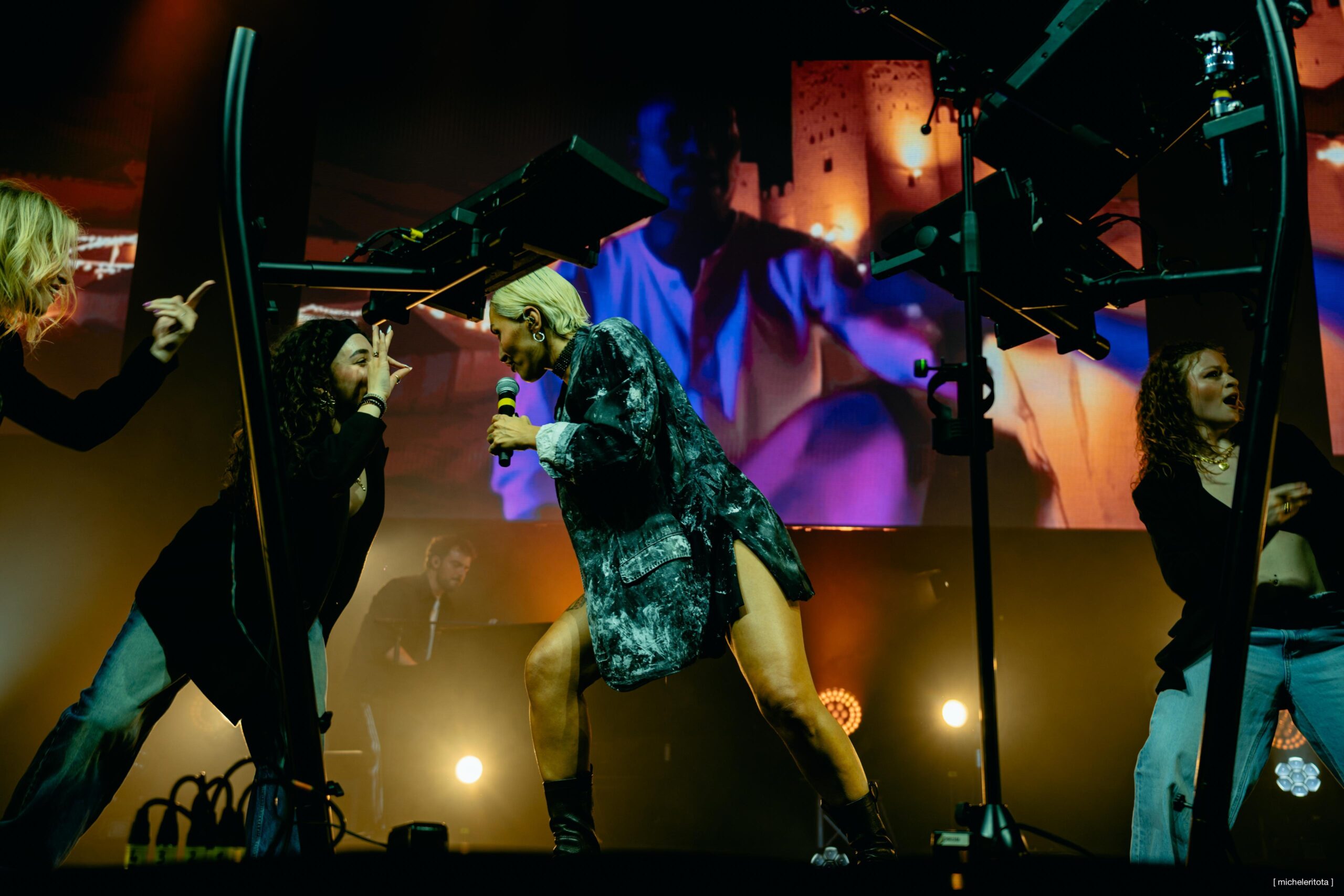She doesn’t come from mainstream pop charts, but from the stage. She doesn’t chase after traditional Italian songwriting, but the sound itself. And she doesn’t sing in English, but in a blend of Barese dialect, soul, jazz, and electronic music. Serena Brancale, a musician from Apulia with a conservatory background and a career forged in live performance, will take the stage at New York’s Blue Note on July 7, in the heart of Manhattan—a historic club long considered a shrine to jazz.
Meanwhile, back in Italy, her Anema e Core Tour continues to expand, with six new summer dates, a grand finale at Milan’s Teatro Arcimboldi, and Serenata, the hit duet with Alessandra Amoroso that fused pizzica, flamenco, and sirtaki into a popular dance anthem played millions of times.
We reached her on the eve of her departure for New York.
It’s your first time at the Blue Note in New York. You’ve played the Tokyo, Shanghai, and Seoul clubs before. What does this one mean to you?
The Blue Note in New York is one of the sacred temples of world jazz. All my heroes have played there—from Ray Charles to Ella Fitzgerald. It’s a dream come true. I’ve performed in New York before, at the Italian Cultural Institute, and it was a wonderful experience. But this time, I’m stepping into something new, something big. I can’t wait for the challenge. I’m very emotional about it.
From Sanremo (Italy’s prestigious national music festival) to international jazz clubs, with tracks like Baccalà and La Zia, your path seems to resist classification. How important is it for you to remain uncategorizable?
I don’t like being boxed in. I come from a conservatory background, I studied jazz, but I also love pop and soul, and I enjoy experimenting—playing with music. I’ve always asked myself: why should I be ashamed if I like impersonating Paola Cortellesi (a popular Italian actress and director) or listening to techno? We are never just one thing, and I think it’s beautiful to embrace all the shades of what we love.
You blend Barese dialect, Mediterranean rhythms, jazz, and soul. And yet it always sounds like you. How do you stay coherent across all that?
I’ve always followed instinct, diving into very different projects—from tributes to Pino Daniele (a Neapolitan singer-songwriter who fused blues, jazz, and traditional southern Italian music) to today’s explorations of new sounds, without worrying too much about definitions. In the end, I simply do what excites me, and I believe that’s the most authentic choice. For me, there are no real boundaries between genres: jazz, soul, house, folk music—they’re all expressions of the same language. Because ultimately, music is universal.

Your lyrics often feature dialect, even when the music itself moves in a global direction. In a setting like the U.S., do you feel the need to translate, or do you let the sound speak for itself?
Sound speaks for itself; it doesn’t need translation. But I do enjoy playing with languages, and dialects too. In Asia, for instance, I’d ask the audience to give me a sentence in their language, record it with a loop station, and then we’d improvise together. It was a lot of fun. What really struck me, though, was the level of engagement: people knew my songs even if they didn’t speak Italian. I remember a conversation with Fabrizio Bosso, an extraordinary jazz musician, who told me that in Japan or China I’d find incredibly respectful audiences. And he was right. At the Blue Note I found myself in front of Chinese and Korean listeners who had no connection to Italy, but had looked me up before the concert. They knew who I was, they knew my songs. They weren’t just there to hear Anema e Core—they came to listen to Serena Brancale. And they loved the rest of the set, too. It was unexpected, intense, and deeply moving.
With Serenata and Anema e Core, you’ve shown a strong connection to Southern Italy’s musical tradition, but with a contemporary voice. How do you balance respect for tradition with the impulse to rewrite it?
When I compose, I always start from what feels deeply mine: the South, the dialect, the emotions tied to my homeland. From there, I begin a journey that brings all of that into a new dimension—modern arrangements, grooves, jazz, electronics. In Anema e Core, for instance, I chose a Neapolitan title but sang in Barese. It was a gesture of love for Pino Daniele, who taught me how powerful and universal dialect can be. For me, it’s a natural process: I gather the richness of tradition, the popular melodies, the sounds of home, and weave them into contemporary beats, loops, urban influences. A perfect example is Serenata, the duet with Alessandra Amoroso: we combined flamenco, sirtaki, pizzica, and soul to create something that’s deeply rooted in the earth but has a fresh, pop, almost tribal soul. That’s my artistic truth—transforming origins into a personal language that unites memory and the present without ever losing authenticity. That’s where my sound comes from.

Your live shows are visceral—almost theatrical. How much does the body matter in your performance?
Every movement is intentional—nothing is improvised. On stage, I don’t leave anything to chance: every gesture, from the cry of ‘la zia’ (a catchphrase from one of her signature songs) to a strike on the percussion, is constructed in harmony with breath and voice. My live performance is a continuous flow—elegant, but also raw—where every track becomes a conscious movement, part of a deliberate design. Nothing is random; everything has meaning. Everything speaks. And on this tour in Italy, that energy is amplified by a dance ensemble entirely from Puglia. It’s a force that comes straight from my roots and brings rhythm, identity, and connection to the stage.
If you could collaborate with any American artist—past or present—who would it be?
“I grew up listening to Stevie Wonder, and singing with him would be an immense dream. I’ll never forget his concert at the Arena di Verona: it was that night I decided I wanted to deepen my study of piano, not just singing. Of all artists, he remains my ultimate reference—musically, vocally, melodically”.












